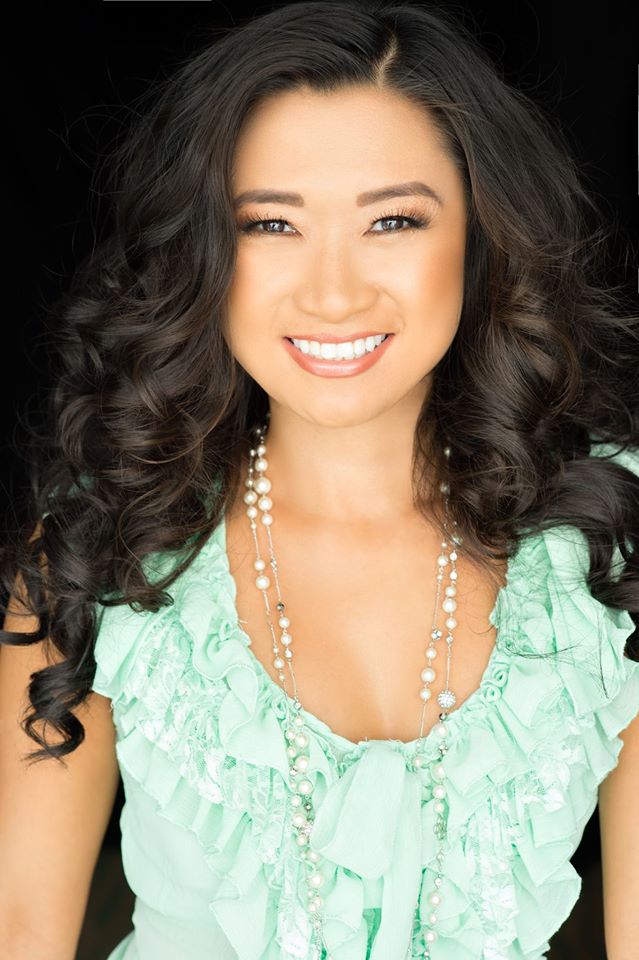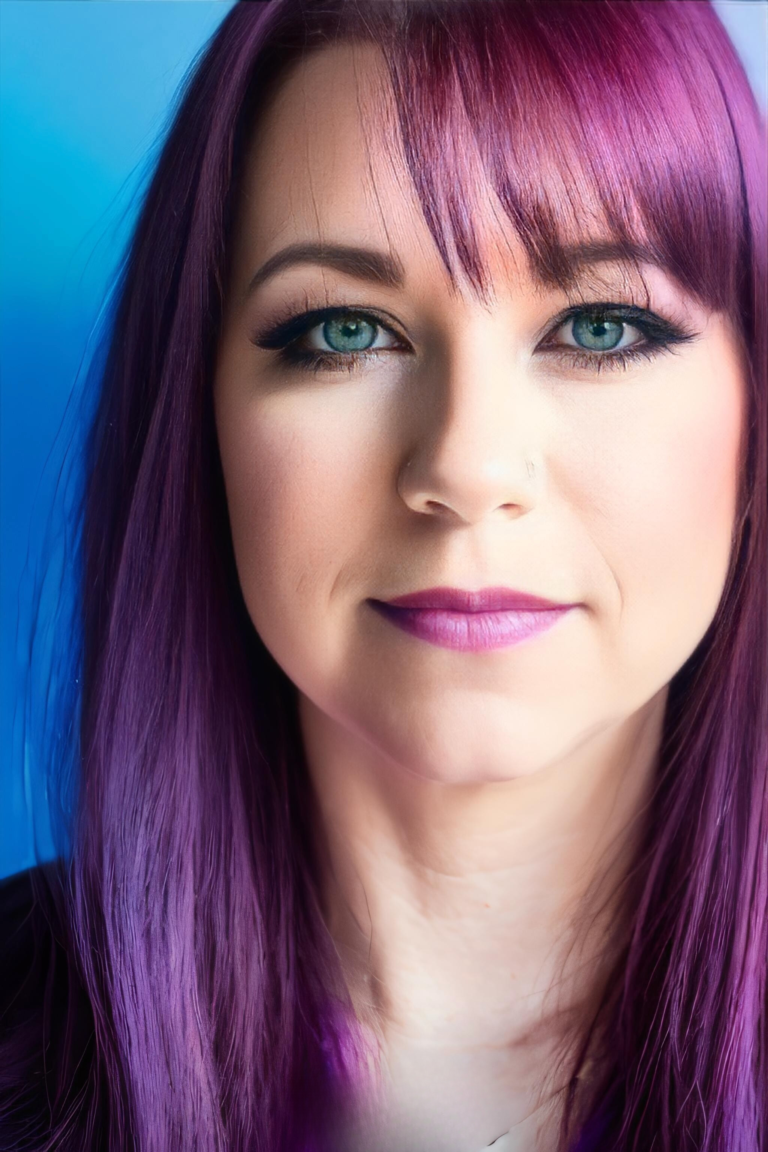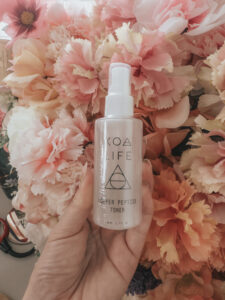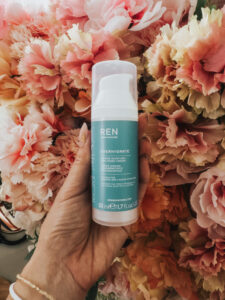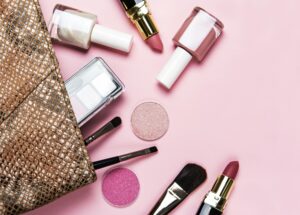As the beauty industry evolves, eco-consciousness and sustainability are coming to the forefront. Megan Cox, CEO of Genie Supply, is one of the influential voices guiding this shift. Since launching Genie Supply in 2018, Cox has championed clean, environmentally friendly practices across the company’s product development, sourcing, packaging, and operations.
In this interview, Cox provides insight into Genie Supply’s founding principles, approach to sustainability, and the challenges encountered on this journey. She underscores that consumers play a pivotal role in driving meaningful change through the brands they support and the questions they ask. Cox also stresses that eco-consciousness in beauty is no longer just a trend but a fundamental paradigm shift – one that Genie Supply is actively facilitating through its steadfast commitment to people and the planet.
The conversation provides a window into the mindset of an inspiring leader who is propelling her company and the broader beauty industry toward a more sustainable future. It highlights the creativity and perseverance required to overcome obstacles and hold fast to a vision that benefits all.

Can you tell us about the founding of Genie Supply and the core principles that drove its inception?
In 2013, I embarked on an entrepreneurial journey by launching my beauty brand. This venture led me to China to address some packaging quality control concerns firsthand. I documented this experience on my brand’s blog and social media, which caught Shopify’s attention, leading them to spotlight my early accomplishments. Consequently, other beauty founders and labs approached me, seeking assistance with packaging, manufacturing, quality control, and negotiations in China.
While this consulting role lasted for two years, I grappled with the recurrent inconsistencies in product quality, particularly in small-batch manufacturing. This recurring challenge – along with an acknowledgment of the growing demand for US-manufactured, small-batch beauty on a tight product development cycle – compelled me to rethink my direction. Although it was a significant pivot – transitioning from part-time consulting and running my brand full-time – I sensed the allure of manufacturing’s challenges. In March 2018, after selling my brand, we opened the doors to our first lab at Genie Supply.
Our initial phase, spanning 24 months, was a period of exploration and gradual growth. We experimented with diverse formulas, dabbled in various formats, and refined our expertise in small-batch production. From the outset, Genie Supply was conceived as a beauty lab by founders, for founders. The traction we gained was promising. However, the pandemic in 2020 presented a crossroads: either wind down the operation, treat it as a valuable learning experience, or amplify our commitment and vision. We chose the latter.
As with any evolving enterprise, we’ve expanded, refined, and occasionally retracted our offerings based on their efficacy and market response. Our mainstay remains our “founder-first formulating” approach. Unlike many labs that often withhold formula ownership, we grant founders complete ownership rights from the beginning. This transparent approach is rooted in recognizing the challenges founders face, particularly when they need to pivot, move to another lab, or even face unexpected lab closures. Not owning a formula or lacking the necessary documentation can be a roadblock to scalability and adaptability. At Genie Supply, our commitment is to prioritize founders’ needs, ensuring they’re equipped for success today and are poised for the challenges and opportunities of tomorrow.
How would you define Genie Supply’s mission regarding sustainability and eco-conscious beauty?
At Genie Supply, while our primary role is to develop, test, manufacture, and support beauty products, we believe that sustainability isn’t just a trend, but an imperative. In the current environmental context, remaining passive isn’t an option.
Our commitment to eco-conscious beauty is evident in our holistic approach:
Materials and Ingredients: All materials we employ are biodegradable, ensuring they don’t strain our water filtration systems. We lean heavily on natural and naturally-derived materials, constituting over 90% of our extensive 2000-ingredient portfolio. Our focus is always on alternatives that uphold both human and environmental health, and we actively encourage our clients to embrace renewable resources and upcycled ingredients.
Packaging: We champion recyclable packaging. Recognizing a gap in the market, in 2021, we took the initiative to produce our own post-consumer recycled (PCR) packaging. This move was driven by our commitment to minimize the influx of virgin plastics into the ecosystem.
Internal Processes: Our commitment permeates our everyday operations. We’ve integrated biodegradable solutions across the board – from sample baggies that feel like plastic but are completely degradable to our stickers, labels, tape, paper-based “bubble wrap”, tissue, and boxes. Collaborations with environmentally conscious vendors, like EcoEnclose and Noissue, further solidify our promise to maintain minimal environmental impact throughout our production cycle.
In essence, while we provide support and manufacturing to beauty brands without passing judgment, when it comes to our planet, we’re unwavering advocates for sustainable and responsible practices.
What have been some challenges Genie Supply has faced while implementing sustainable practices, and how did you overcome them?
Implementing sustainable practices at Genie Supply has presented several challenges, but our commitment to the environment drives us to persevere and innovate.
Biodegradable Packaging for Cosmetics: In 2020, we brought an environmental engineer on board to help us navigate the complexities of eco-friendly packaging. We quickly discovered that crafting biodegradable packaging for cosmetics is a formidable challenge. The majority of cosmetic products contain significant amounts of water; in fact, anything over 30% poses a risk of prematurely biodegrading the packaging itself. Given this obstacle, we initially felt PCR (post-consumer recycled) was the most viable solution for water-containing products. However, financial constraints in 2020 temporarily halted our progress in this direction.
Sourcing (then Manufacturing) PCR Packaging: In 2021, our determination to find PCR packaging reignited. Our search revealed that, at the time, only a couple of companies – based in distant locations like the Netherlands (and also were very large runs only or more research-based institutes rather than commercial ones) – were producing such packaging. With China still inaccessible, we faced the herculean task of figuring out the manufacturing process ourselves. We documented our journey, which you can now view on our website under the PCR packaging section. The result? Our in-house PCR packaging is distinct in its off-white hue, which can be customized for larger batches. However, our main aim remains to facilitate small-batch runs for our clients.
Transition to Biodegradable Components: Transitioning to entirely biodegradable components for our shipments, sample orders, and bulk packaging in 2021 was another steep hill to climb. The hunt for sustainable yet aesthetic pieces was long-winded and pricier than conventional materials, almost doubling our costs. Although we don’t heavily market this aspect, our dedication to the cause remains unwavering.
Evolving Ingredient Landscape: The ingredient landscape has evolved significantly. Manufacturers are increasingly transparent about the natural percentage of ingredients, and certifications like EcoCert and upcycling are more common. However, this wasn’t the case a few years back.
2023 brings a new playing field, but our commitment to sustainability remains as strong as ever. The challenges we face only make our mission more pertinent.
Do you see eco-conscious beauty as a trend or as a fundamental shift in the beauty industry? Why
Eco-conscious beauty is evolving beyond a mere trend; I believe it’s becoming a fundamental shift in the beauty industry. While a minority of consumers, especially among Gen Z, is extremely passionate about eco-conscious formulas and packaging, their influence is far-reaching. For these discerning consumers, eco-consciousness isn’t just a feature or a unique selling point of a brand; it’s a baseline expectation, much like how vegan and cruelty-free formulations have become standard expectations.
It’s essential to understand that sometimes, a vocal minority can drive significant change. As an example, even though only 1% of the population identifies as vegan, a vast majority of products launched today boast vegan formulations. Their demands resonate loudly, driving brands to adapt.
However, as we witness significant shifts in our climate and increasing environmental disasters, my hope is that the broader populace recognizes the critical importance of eco-consciousness and sustainability. The well-being of our planet should be a shared responsibility, and eco-conscious practices in beauty and other industries should transition from being a highlighted feature to an inherent standard.
As the CEO, what personal experiences or values have driven you to prioritize sustainability in the beauty industry?
Growing up in Indiana (where Genie Supply is headquartered now), I was always intimately connected to the natural world. I fondly recall running barefoot daily through forests and creeks, working from seedling to harvest in our family garden, and farming from a young age — even today, I have a hobby alpaca farm at my home. This intrinsic bond with nature has always shaped my perspective.
However, it was my time in China that truly underscored the urgency of sustainability for me. In 2017, the deteriorating air quality became a significant concern. On nine out of ten days, the air pollution levels in Shenzhen were so hazardous that staying indoors or underground was the only safe option due to exceedingly high PMI levels, often surpassing 130. I still vividly remember a stopover in Beijing where the night was engulfed in a thick, grey smog. It reminded me of stories from the U.S. in the 1970s, but experiencing such alarming pollution levels firsthand – also at a time when the population of the world was doubled compared to the 1970s and still growing (meaning it would be increasingly difficult to backtrack pollution given the high population) – was a stark awakening.
The contrast between the pristine environment of my childhood and the deteriorating conditions I witnessed abroad compelled me to act. While Genie Supply might be a smaller player in the grand scheme of things, I believe that every bit counts. We take pride in being a beacon of eco-consciousness in the beauty manufacturing sector, an area where many others have remained complacent. Every step towards sustainability is a step closer to preserving the planet for future generations.
Where do you draw inspiration from when considering new sustainable practices or products?
Frankly, when considering new sustainable practices or products, our primary inspiration stems from the commitment shown by ingredient manufacturers, especially those in Europe. They’ve been remarkably progressive, consistently introducing innovative plant-based materials. They’ve provided eco-friendly alternatives to widely-used beauty ingredients, such as mineral oil, petroleum derivatives, phthalates, sulfates, parabens, and silicones. Many of the ingredients commonly flagged on “no-no” lists have been ingeniously recreated using plant-based sources. We ensure we’re always updated with these new and emerging materials, and we’re swift to incorporate them into our formulations.
Our approach to product development and innovation is streamlined; we convene four times annually to brainstorm and roll out new products. Beyond this, our direction is significantly influenced by experts in environmental engineering and sustainability. We find that there’s a beautiful intersection between their expertise and the skills of our chemists—it is, at its heart, all about the chemistry.
On the aspect of processes that champion waste reduction, I draw from my academic foundation. With a degree in operations research from MIT, I’ve studied consistent optimization methods that resemble techniques like Kanban or Six Sigma but with a more intricate approach. This discipline taught me to examine how both quantitative and qualitative variables influence systems and generate feedback loops. My experience in this realm has been invaluable, and I frequently introduce process improvement strategies to our team. This commitment to constant refinement is truly at the core of my professional identity.
What message would you like to convey to our readers about the importance of sustainable and eco-conscious beauty?
The message is clear and urgent: sustainable and eco-conscious beauty is no longer just a preference, it’s a non-negotiable. It’s vital for consumers to be proactive and inquisitive. Challenge your favorite brands by asking tough questions and advocating for meaningful change. In the U.S., much of the momentum in this industry isn’t driven top-down. The FDA’s regulations have largely remained stagnant for a century, with the introduction of MoCra marking the first significant alteration in their legislative stance in 100 years. This places the onus on consumers to become the drivers of change.
Inquire about the origins of the packaging, understand its lifecycle, and ascertain how you can recycle, return, or refill products. Question the source and percentage of natural ingredients used, as well as their biodegradability. Given the consumer-driven nature of the U.S. market, your voice and choices carry tremendous weight. As I’ve emphasized before, championing sustainability is a crucial commitment we owe to our planet at this critical juncture.
Why we only do “clean beauty” and what that means to us:
To clarify, our sole focus at Genie Supply is manufacturing clean beauty products. This approach inherently eliminates many ingredients that are potentially harmful to both human and environmental health. Embracing clean beauty isn’t about instilling fear but rather emphasizing a commitment to the safety of our planet and its inhabitants. The pivot to eco-conscious practices reframes the conversation from one of ingredient aversion to one centered on holistic well-being, a critical perspective that has been overshadowed for too long.

